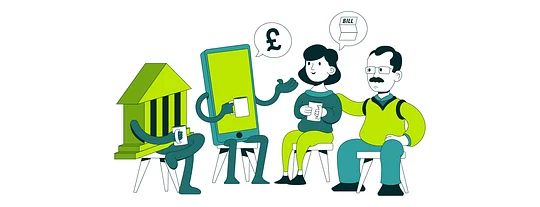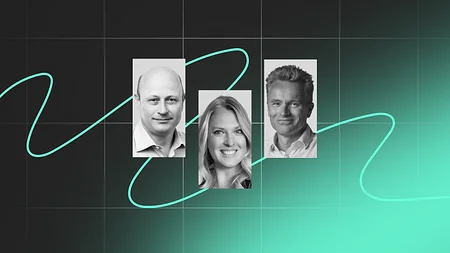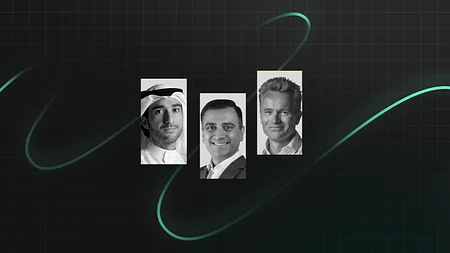Toucan on inclusive banking: working with people living with mental health conditions

In this guest blog Bailey Kusar, co-founder and CEO of Toucan, examines how open banking can be used to deliver services that better support people with mental health conditions to manage their finances.
Digital banking is only 1% finished.
In case this is your first time here, that’s the 11:FS motto. For me, it rings true in more ways than one. Although we’re starting to make progress as an industry, there are still so many people’s needs we are yet to prioritise. Those who are the least well off, or those who are vulnerable in some way.
Open banking is one example of a technology approach that, promising as it is, is more likely to be used to round up spare change, or apply for a loan, rather than help those living on the edge.
Now for something different
At Toucan, we believe open banking can do all of that and so much more. Something that isn’t just about what’s in your wallet. Rather, helping those with conditions that affect how they manage their money, such as dementia, learning difficulties or mental health problems.
For me, it’s personal. I started Toucan because I’d experienced mental health problems myself, and saw how much of an impact it had on my ability to manage my own money. When you’re struggling, particularly when you’re not earning an income due to poor health, it becomes crucial to be able to get support from a loved one or carer to pay bills and manage a budget.
One in five people living with a mental health problem has let someone else log into their online banking
Unfortunately, today there are millions getting that support through risky and informal workarounds such as sharing their debit card and PIN or even their online banking logins. One in five people living with a mental health problem has let someone else log into their online banking, according to the Money and Mental Health Policy Institute. These risky workarounds are leaving these already vulnerable people open to financial abuse.
I saw that this was an eminently solvable issue. After all, at its heart, open banking is a promise to the consumer that they own their own data and can choose to use it how they see fit. It seemed to me to be the perfect use case for open banking, helping consumers share access to their financial data safely and flexibly.
Open banking made it possible to design, build and test our app in just six months. We’ve been able to produce real outcomes for real people and gather valuable feedback, all because we were able to build quickly on top of the banks’ APIs.
Real people, real outcomes
Toucan helps people living with conditions such as mental health problems manage their money better, supported by someone they trust, such as a carer.
In Sarah's own words, she says that she finds financial products 'too daunting'
From July to October this year we were able to pilot the app with 14 people living with mental health conditions and their chosen family members, recruited through leading research charity the Money and Mental Health Policy Institute.
They tested an early version of Toucan, an app that connected to their main bank account, helped them set up rules-based alerts around their spending and asked them to nominate a trusted family member or carer who would receive the alerts simultaneously.
We’ve written up how we tested Toucan and our findings in an industry-facing report. The outcomes we witnessed went much further than we’d anticipated, particularly for such a short pilot.
Sarah’s story
To illustrate the impact that Toucan was able to have, here is the story of someone we’re calling Sarah, one of the 14 people who used the app during our pilot. She’s 40 years old, lives in the North West, and is very family-orientated. Warm, friendly and positive, she enjoys doing puzzles to calm her busy mind.
Unfortunately, Sarah suffers from poor health. She’s been waiting for back surgery for the last couple of years and her mental health has gotten worse as a result. Among other conditions, she’s been diagnosed with borderline personality disorder, depression and agoraphobia.
We live in an ageing society, with a mounting mental health crisis
What makes her situation worse is that her mental health affects her spending and her ability to manage her money. In her own words, she says that she finds financial products “too daunting”. She struggles to control her spending, and told us she was a hoarder.
When we met her in July, Sarah said she had a great support network but that she struggles to ask them for help. Her younger sister is busy with her own family and job, working as a midwife. Her mum, who she lives with, can be stressed out with her own problems. Sarah said she felt like a burden, which led her to feeling ashamed and anxious.
When we gave Sarah access to Toucan in July, she decided to set up alerts around her spending that would get sent to her sister. That meant that during the trial whenever she overspent in a day, or her balance dropped below a certain point, her sister would get a text message suggesting she get in touch to offer support.
When triggered, the text messages sparked supportive conversations between Sarah and her sister about her money situation, with practical support on how to help. Her sister would cook her tea, buy coffee or basics when needed. She advised her to switch to an e-cigarette to save money. By the end of the pilot the two of them had even created an eBay account together, intending to sell off some of the things Sarah had been hoarding, to free up cash for Christmas.
What might seem like a simple feature for many could have a huge impact on some people’s quality of life
More important than the improvements to her financial health, though, were the improvements to Sarah’s mental health. She felt much more able to open up about her struggles with her sister and her wider family, making her feel better supported and no longer a burden.
At the end of the pilot, Sarah told us, “It had a massively positive impact. It’s just opening communication that I wasn’t having and it has broken down a lot of anxiety and shame”.
Inclusive design
Our research showed that turning on light touch third-party support for the people who tested Toucan really helped improve their financial health and wellbeing. Alerts triggered gentle, supportive money conversations. Those conversations led to practical money saving and making tips and strategies. Financial habits were improved, too, where pilot testers checked their bank balance more often and were more aware of their spending.
For people living on low incomes with mental health conditions that affect their ability to manage money, these findings are important. What might seem like a simple feature for many could actually have a huge impact on some people’s quality of life; people who often feel ignored or forgotten by bank bosses, or worse, mis-sold to or mistreated.
We need the bank of the future to be inclusive; to work for everyone, no matter their background
At Toucan we see the research we’ve just launched as a blueprint for how financial services firms can build more inclusive features and products. If you’re not doing so already, you can learn how to develop inclusive products, too. It really comes down to focus.
A matter of priorities
The way we spend, save and borrow money has changed so much in the last decade; inevitably there are people who are left behind, or who start to feel overwhelmed.
It’s easy to say that these are the outcomes of progress, but that’s a cop out. We all have choices. When we’re building the banking products of the future we can choose whether we design thoughtfully, rather than prioritise profit over the wellbeing of our users.
We live in an ageing society, with a mounting mental health crisis on our hands. Upcoming guidance from the FCA on identifying and protecting customers in vulnerable circumstances will force firms to prioritise these issues. But you don’t need to wait until then; you can make a start on building for financial inclusion today.
So if digital banking is only 1% finished, think about what role you’ll play in building the 99% that’s left. We need to rethink how we’re going to do it. We need the bank of the future to be inclusive; to work for everyone, no matter their background, including Sarah.
Bailey Kursar is Co-founder and CEO of Toucan. Find out more about their research report at usetoucan.com/research and join their #LetsTalkAboutMoney campaign for safer financial delegation at usetoucan.com/campaign.


